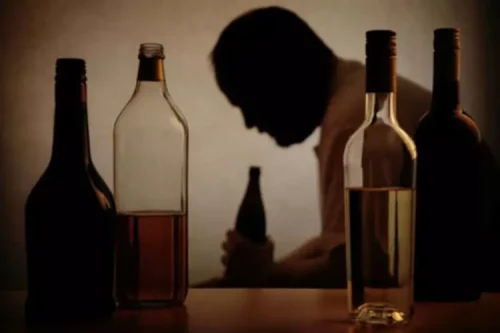
These criteria include loss of control over use, social impairments, tolerance, withdrawal symptoms, and continued use marijuana addiction despite negative consequences. A diagnosis requires at least two of these criteria to be present. After examining the acute and long-term effects of cannabis, CUD appears to conform to the general patterns of changes described in the Koob and Volkow model of addiction. Previous preclinical and clinical studies indicate that features of the three stages of drug addiction described by Koob and Volkow are also present in cannabis addiction (Fig. 1), although these findings may not be as robust as other drugs of abuse. Finally, one of the most consistent neuroimaging findings in addiction is that of dysregulation of frontal cortical regions involved with executive function including the dorsolateral prefrontal cortex, the ACC and the inferior frontal cortex.
Nora D Volkow
Despite the risks, studies of medicinal marijuana use have shown effectiveness. Nearly 90 percent of people who use medicinal marijuana claim that it helps them to manage their disease and symptoms, and many find that they are able to decrease their use of other medications. Cannabis use disorder, or marijuana use disorder, is when a person continues to use the substance even though they experience negative health or life effects from use.
Signs of Marijuana Misuse and Addiction
- Contact one of our compassionate Admissions Navigators at American Addiction Centers (AAC), who will listen to your story, explain your options, and even help verify your insurance.
- Programs like Marijuana Anonymous (MA) and other peer support groups provide a community of individuals who share similar experiences.
- Research has also found that developing a strong sense of self-efficacy, or a belief that a person can resist using cannabis, is an important predictor of long-term abstinence.
- And the more blunted their response to the methylphenidate, the more negative emotions they felt, including irritability, anxiety, depression, and aggressiveness.
- Kennedy has expressed open-mindedness about which policies might be most effective at reducing drug overdose rates.
Recognizing the signs of marijuana addiction can help you determine the severity of your problem. Although marijuana is becoming legal in more states, there’s still the potential for abuse and addiction. Using more to get the same effect, giving up once-loved activities in order to use, and withdrawal symptoms like irritability, mood changes, and disruptions to sleep and/or appetite can all signal that someone might be experiencing marijuana abuse.
Signs of Marijuana Addiction
The American Psychiatric Association’s most recent criteria for substance use disorders include tools to identify cannabis addiction. For someone to be considered addicted, he or she must drug addiction treatment meet at least two of the 11 criteria, which include an inability to reduce consumption, constant cravings, and relationship and social problems. Marijuana is primarily psychologically addictive, causing cravings, dependence, and compulsive use.
Diagnostic Criteria (DSM-
The focus area is the symptoms of anxiety, depression, or other psychiatric conditions that are worsened by cannabis use. This assessment is important in determining the appropriate treatment plan and addressing any underlying issues that are contributing to marijuana addiction. Long-term use of marijuana has been proven to have addictive potential. In most cases, first-time users will not become addicted and even occasional users who smoke pot recreationally may not become addicted to the drug.
Physical Effects

On a related note, the combination of marijuana and alcohol increases driving impairment more than either substance alone. One study found that people =https://ecosoberhouse.com/ who smoke marijuana frequently but do not smoke tobacco have more health problems and miss more days of work than those who don’t smoke marijuana, mainly due to respiratory illnesses. It is not yet known whether marijuana smoking contributes to the risk for lung cancer.


That means you may need to use more of the drug to feel “normal,” or you may feel stressed out when you’re not using it. Many people can use marijuana safely without becoming addicted or abusing it. But like any mind-altering substance, there’s always a chance that it can become problematic. A number of studies link chronic marijuana use and mental illness. High doses can produce a temporary psychotic reaction in some users. Use of the drug can also worsen the course of illness for patients who have schizophrenia.

Food and Drug Administration to treat nausea and vomiting induced by chemotherapy, both available in capsule form. AddictionResource aims to present the most accurate, trustworthy, and up-to-date medical content to our readers. Our team does their best for our readers to help them stay informed about vital healthcare decisions. Cannabis, the most widely used illicit drug in the U.S., is known for its range of effects—from mild euphoria and altered perception to severe symptoms like paranoia, hallucinations, and impaired concentration when used heavily.
Another possibility is that marijuana users who become misusers have a dopamine system that’s naturally less responsive, making them more vulnerable to abusing the drug. When given a chemical, methylphenidate, that caused dopamine levels to rise in the brain, the marijuana users didn’t respond as strongly or feel as high as nonusers. Volkow also conducted a 2014 study that found that the brains of people who misuse marijuana have a decreased response to dopamine. Over time, users may graduate from smoking marijuana to using it in high-dosage edible forms or propane-extracted concentrates called dabs.
This support network can be made up of family and friends, fellow patients you meet in treatment, people you interact with at 12-step meetings, and even online support groups and forums. Paranoia is also a common symptom of marijuana use, although friends and family members of the individual suffering from marijuana addiction are more likely to notice this effect than the user. Only after they are in recovery do most individuals realize the degree to which marijuana-induced paranoia has been negatively impacting their lives. Accurate diagnosis of mental health disorders and appropriate treatment, including medication, may help to reduce attempts to self-medicate with marijuana. Although anyone who uses marijuana has the potential to abuse it, there are risk factors that can make marijuana abuse more likely. Having these risk factors doesn’t mean you definitely will develop a substance abuse problem, but you may be more at risk.


